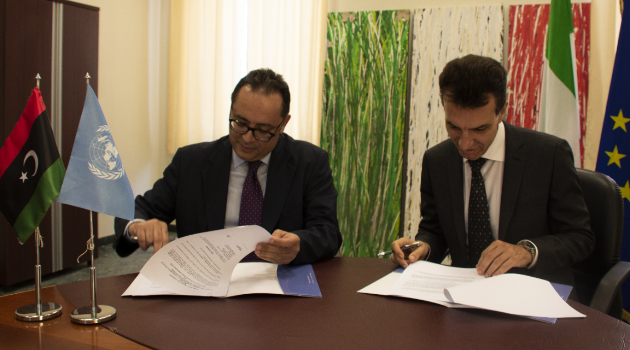The Italian Government has contributed €500,000 to the United Nations Development Programme (UNDP) in Libya to support national reconciliation efforts.
His Excellency, the Italian Ambassador to Libya, Mr. Giuseppe Perrone, and United Nations Development Programme (UNDP) Country Director to Libya, Mr. Sultan Hajiyev, signed the agreement today in support of local reconciliation and mediation efforts in Libya.
The financing agreement comes as part of the “Towards National Reconciliation in Libya” project and was signed in a ceremony at the Italian Embassy in Tripoli.
The Italian Government’s €500,000 commitment towards enhancing the role of local mediators, civil society, youth, women and religious leaders in reconciliation efforts through a series of capacity-building activities and through the consolidation of an active and trained network of local peacemakers, that shall also include a women-specific group.
During the signature ceremony, H.E Mr. Perrone stated:
"Addressing communities’ grievances through dialogue is the necessary premise for an inclusive political process leading to stability and prosperity in Libya. Developing the necessary capacity and skills at grassroot level, including women and youth in this truly national effort, is key to empowering local communities. Through this program, Italy once again lends its factual support to the UN-led effort towards peace for the people of Libya.”
On his part, Mr. Hajiyev highlighted:
“We are grateful to our Italian partners for their continuous support to development efforts in Libya. Italy was and remains one of our important international partners in the country. Reconciliation process is never easy but it is vital for peace and stability. We hope this valuable contribution from our Italian counterparts will further reinforce mediation processes and positively impact local reconciliation.”
Implemented jointly by UNDP and the United Nations Support Mission in Libya (UNSMIL), the “Towards National Reconciliation in Libya” project is currently assisting Libyan national and local authorities, civil society and other partners in their effort to promote an inclusive vision for national reconciliation.
(Source: UNDP)





